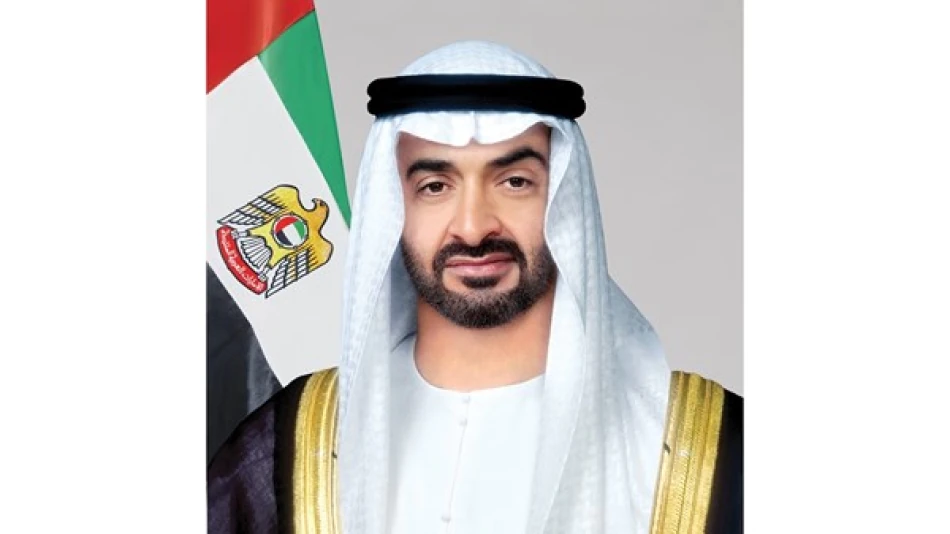
UAE President Meets Georgia's Ruling Party Honorary Leader During Official Visit
UAE President's Georgia Visit Signals Strategic Push into Caucasus Region
UAE President Sheikh Mohammed bin Zayed Al Nahyan's official visit to Georgia marks a significant diplomatic move as the Emirates expands its influence beyond traditional Middle Eastern partnerships. The high-level meetings with Georgia's ruling party leadership underscore the UAE's growing appetite for strategic alliances in the resource-rich Caucasus region, potentially opening new corridors for trade and investment.
High-Stakes Diplomatic Engagement
During his visit, Sheikh Mohammed bin Zayed met with Bidzina Ivanishvili, the honorary president of Georgia's ruling Georgian Dream party, alongside Georgian Prime Minister Irakli Kobakhidze. The meeting focused on strengthening bilateral relations and exploring mutual development opportunities between the two nations.
The UAE President expressed satisfaction with his visit to Georgia, highlighting the continuous qualitative development in UAE-Georgia relations since diplomatic ties were established in 1992. He emphasized particular progress in sectors that represent developmental priorities for both countries.
Strategic Caucasus Positioning
Sheikh Mohammed bin Zayed's characterization of Georgia as an "important partner in the Caucasus region" reveals the UAE's broader regional strategy. This positioning suggests the Emirates views Georgia as a gateway to the wider Caucasus, which includes energy-rich Azerbaijan and strategically located Armenia.
The UAE leader confirmed his country's commitment to expanding developmental partnership horizons with Caucasus nations, aiming to enhance shared development, stability, and prosperity for all regional peoples.
Economic Implications
This diplomatic engagement likely signals upcoming economic agreements. Georgia's strategic location as a transit hub between Europe and Asia, combined with its business-friendly policies, makes it an attractive partner for UAE investors seeking diversification beyond traditional Gulf markets.
The timing is particularly significant as global supply chains undergo restructuring, and countries seek alternative trade routes that bypass geopolitically sensitive areas.
Regional Context and Comparisons
The UAE's Caucasus outreach mirrors its successful expansion into Central Asia and Africa over the past decade. Similar to its partnerships with Kazakhstan and Rwanda, the Emirates appears to be leveraging its financial capabilities and diplomatic neutrality to build bridges in regions where other major powers face constraints.
Georgia's response, through Ivanishvili's praise for the strength of UAE-Georgia relations, suggests Tbilisi welcomes deeper ties with a wealthy, politically neutral partner that doesn't come with the geopolitical complications of EU or Russian engagement.
Looking Forward
This visit represents more than ceremonial diplomacy. It positions the UAE as a serious player in Caucasus development, potentially leading to significant investment flows in Georgia's infrastructure, technology, and energy sectors. For Georgia, UAE partnership offers economic opportunities without the political strings often attached to Western or Russian engagement.
The presence of a full UAE delegation during these discussions indicates concrete follow-up actions are likely, making this visit a potential turning point in regional economic relationships.
Most Viewed News

 Layla Al Mansoori
Layla Al Mansoori






